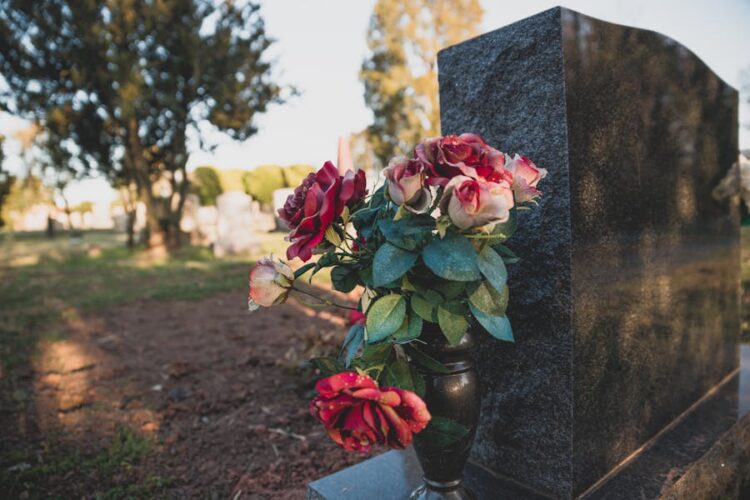When a husband dies, the emotional impact on a family is profound. Along with emotional grief, practical concerns such as financial stability arise. One common question is whether a wife can receive her husband’s Social Security Disability benefits after his death. This topic is particularly relevant for households dependent on Social Security Disability Insurance (SSDI) as a primary income source. Understanding the eligibility criteria and how the process works can help alleviate some stress during this difficult time. This article will explore the circumstances under which a wife may qualify for these benefits, the rules governing survivors’ benefits, and what steps should be taken to ensure a smooth application process.
Survivors’ benefits are an essential part of Social Security, aimed at helping families cope with the loss of a loved one. However, determining whether a wife can receive her deceased husband’s Social Security Disability benefits involves multiple factors such as age, disability status, and whether children are involved. We’ll break down these considerations in detail, helping you navigate the often confusing rules of Social Security.
When a husband dies, does the wife get his social security disability?
Yes, a wife can receive her husband’s Social Security Disability benefits after his death under certain conditions. These benefits are called survivors’ benefits and depend on her age, marital status, and whether she has children under 16. Eligibility is generally more accessible if the widow is at least 60 or disabled.
Can a Wife Claim Her Husband’s Social Security Disability Benefits?
When a husband dies, his wife may be eligible to receive survivors’ benefits through Social Security Disability. However, it’s essential to understand that SSDI converts into survivors’ benefits upon death. The wife’s ability to receive these benefits depends on specific eligibility criteria set by the Social Security Administration (SSA). Typically, if a wife is aged 60 or older, she can claim survivors’ benefits. If she is disabled, she can qualify as early as age 50. Furthermore, the presence of dependent children can also impact eligibility. For example, if the widow is caring for children under the age of 16, she may qualify for benefits regardless of her age.
Widows under 60 may still receive benefits, but the amount can be reduced based on their age and employment status. Those who remarry before 60 may not be eligible, although there are exceptions if the remarriage occurs after age 60 or if the widow is caring for minor children. Each scenario has different rules, which is why it’s critical to know the eligibility specifics before applying.
The amount of Social Security Disability benefits a widow receives is based on her deceased husband’s benefit amount. If the husband was receiving SSDI at the time of death, the widow could receive up to 100% of his benefits. Factors such as working credits and the timing of the husband’s retirement or disability claim can also influence the final benefit amount.
Widows need to gather the appropriate documentation to prove their eligibility. This generally includes marriage certificates, death certificates, and proof of the husband’s SSDI status. Filing for survivors’ benefits can take time, so it is advisable to apply as soon as possible to avoid delays.
Understanding these rules helps in making an informed decision when navigating Social Security after the loss of a husband. Knowing the steps to claim benefits ensures financial stability during a challenging time.
Eligibility Requirements for Social Security Disability Survivors’ Benefits
Age Criteria for Widows
The age of the widow plays a crucial role in determining eligibility for survivors’ benefits. Widows who are 60 or older can apply for full survivors’ benefits. However, widows as young as 50 can apply if they are disabled.
Caring for Dependent Children
Widows who are under the age of 60 but are caring for the deceased husband’s children, who are either under 16 or disabled, are also eligible for survivors’ benefits. This provision helps ensure that families with young children maintain financial support.
Remarriage Impact on Benefits
If a widow remarries before the age of 60, she typically forfeits the right to receive survivors’ benefits. However, if the remarriage happens after turning 60, the benefits will continue.
Benefit Amount Calculation
The widow’s benefit amount depends on the husband’s SSDI. Typically, the widow can receive 100% of what her husband was receiving at the time of death.
Documentation Requirements
To apply for survivors’ benefits, widows must present various documents, including the marriage certificate, the death certificate, and proof of the husband’s SSDI eligibility.
Factors Affecting Social Security Disability Survivors’ Benefits
Some of the critical factors influencing whether a wife can receive Social Security Disability survivors’ benefits include:
- Age: Widows aged 60 or older are eligible for full survivors’ benefits, while those between 50 and 59 can receive them if they are disabled.
- Children: Widows caring for children under 16 are eligible regardless of age.
- Remarriage: Remarrying before age 60 can disqualify a widow from receiving survivors’ benefits.
- Husband’s SSDI: The amount of survivors’ benefits depends on the deceased husband’s SSDI at the time of death.
- Employment: The widow’s own earnings can affect the amount of benefits received.
How to Apply for Social Security Disability Survivors’ Benefits?
Applying for Social Security survivors’ benefits after a husband’s death requires careful planning. The Social Security Administration recommends applying as soon as possible after death to avoid delays. To begin the process, widows must gather specific documents such as the marriage certificate, death certificate, and any Social Security records that demonstrate the deceased husband’s eligibility.
The application process can be done online, by phone, or in person at a Social Security office. The widow should provide all required documentation to expedite the process. After submitting the application, the Social Security Administration will review the claim, which can take several weeks or even months. Widows should be prepared for a potential waiting period before receiving the first payment.
The benefit payments are generally backdated to the time of the husband’s death, ensuring that the widow does not miss out on any due benefits. However, applying early helps avoid long delays in receiving benefits.
In addition, widows should understand that the amount received can be adjusted based on their own earnings. If a widow is working and earning above a certain threshold, her survivors’ benefits may be reduced until she reaches full retirement age.
The Social Security Administration provides various resources and tools to help widows estimate the benefit amount and understand the eligibility requirements. Consulting with a Social Security expert or attorney may also help navigate this complex process more efficiently.
Common Myths About Social Security Disability Survivors’ Benefits
Myth 1: A Wife Must Be of Retirement Age to Receive Benefits
While many believe that a widow must be of retirement age to claim her husband’s Social Security Disability benefits, this is not always the case. Widows aged 50 and older, or those caring for dependent children, are often eligible to receive benefits.
Myth 2: Remarrying Automatically Disqualifies a Widow
This is not entirely true. If a widow remarries after the age of 60, she can continue to receive survivors’ benefits from her deceased husband.
Myth 3: Survivors’ Benefits Are a Fixed Amount
The survivors’ benefits depend on various factors, including the husband’s SSDI amount and the widow’s earnings.
Conclusion
Navigating Social Security Disability survivors’ benefits can be complex, but understanding the rules can provide much-needed financial relief after a husband’s death. Widows have several avenues to explore when determining eligibility, including age, marital status, and the presence of dependent children. By preparing the necessary documentation and applying early, widows can ensure they receive the full benefits they are entitled to, securing their financial future during a difficult time.
FAQ’s
Q. Can a wife receive her husband’s Social Security Disability benefits after his death?
Yes, under certain conditions, a wife can receive her husband’s SSDI as survivors’ benefits.
Q. At what age can a widow start receiving survivors’ benefits?
Widows aged 60 or older are eligible for full benefits, while disabled widows aged 50 or older may also qualify.
Q. Does remarriage affect survivors’ benefits?
Remarriage before age 60 may disqualify a widow from receiving benefits, but remarrying after 60 has no effect.
Q. How much can a widow receive in survivors’ benefits?
A. A widow can receive up to 100% of her deceased husband’s SSDI amount, depending on several factors.










